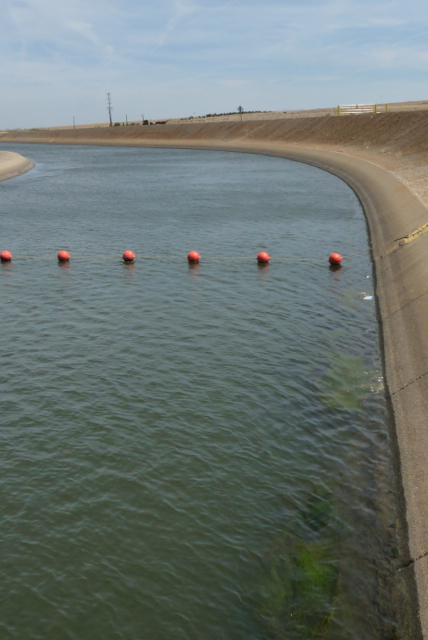Recycled Wastewater Could Help Growers in Del Puerto Water District
Recycled Wastewater Could Help Growers of Permanent Crops
By Kyle Buchoff, CaliforniaAgToday.com

Jim Jasper, Owner/President, Stewart & Jasper OrchardsA recycled wastewater project from Modesto and Turlock wastewaster facilities may help provide 30,000 acre-feet to start with much more coming later if things work out. Jim Jasper, is a diversified grower with Stewart & Jasper Orchards in Newman, which is part of the Del Puerto Water District. “We hope to get about 30,000 acre-feet of water from the city of Modesto,” said Jasper, “and that would start in 2018 if we get it through the Del Puerto Water District which is 45,000 acres stretching from a little bit South of Tracy to just North of Los Banos, along the I-5 corridor.”
This would be enormously helpful for growers in the area, but Jasper said it hasn’t been easy. “We’ve been working on this for going on six years now,” stated Jasper. “We’ve been back to Washington D.C. three or four times, and we are getting a lot of support. Del Puerto would pay to build a pipeline across the San Joaquin River to take recycled water from Modesto up to the middle of the canal. It would cost over 100 million dollars of farmers’ money to get it done, but it would give us a reliable source of approximately 30,000 acre-feet, which would be 1/3 of what our needs are to take care of our district.
And Jasper noted the supply would particularly help growers of permanent crops, “Of the 45,000 acres in our district, about 27-28,000 are permanent crops, mainly almonds, grapes, walnuts, and cherries. So it is very important that we have a dependable water supply. Obviously, 2015 is the second year that we have had a 0% allocation, so it has been extremely challenging to keep our crops alive.”
Jasper stated the Del Puerto Water District, “has 15,000 acres have been idled in 2015 of our 45,000 acres.”
He expounded, “On the Westside, along I-5, we just don’t have groundwater to substitute for our 0% allocation, so it has been very very difficult.”
Jasper said the only way to survive the 0% water allocation was to purchase water from someplace else. “We’re trying to purchase the water,” said Jasper. “Last year, one of the growers I work with in the almond business was successful at purchasing 1,000 acre-feet of water at $2100/acre-foot, so they were able to get through last year. But they sold their orchard because they could not continue that kind of expense. Another grower I do business with bought 1000 acre-feet of water at $2000/acre-foot, was not successful, and subsequently sold his orchard last year. So we see that as good as the almond industry seems to some people–where there is water, where there isn’t water, almond farmers are really hurting. They are pulling orchards–we pulled 400 acres of our 2,000 acres already–and water the younger trees, which have a better future. You just make these decisions. It’s been very challenging.”
And Jasper said that the recycling project gives them hope, “This recycled water will really help if if we can get it through. We’re in the process and are very, very hopeful.”











